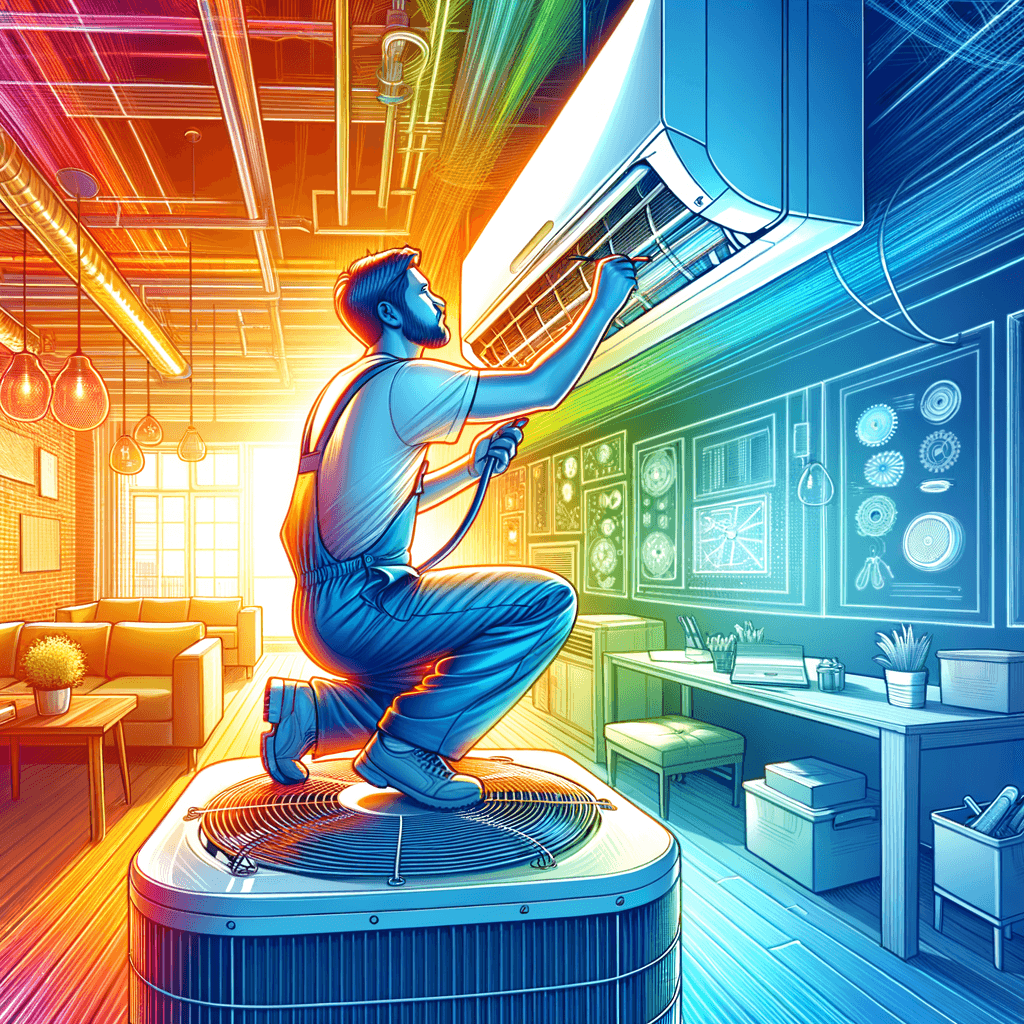
Mastering Air Conditioner Coil Maintenance: Boosting Efficiency and System Longevity
By Total Care Air Conditioning Sun Nov 16 20258 minutes

Why Coil Maintenance is Crucial for Air Conditioning Systems
Coils are at the heart of every air conditioning system, responsible for heat exchange and efficient cooling. Neglected coils quickly accumulate dust, debris, and biofilm, forcing your AC to work harder, consume more energy, and ultimately shortening its lifespan. Regular coil maintenance is essential for keeping energy bills in check and avoiding untimely breakdowns.“A clean coil is the foundation of efficient air conditioning—small efforts here can yield big savings over time.”
Types of Air Conditioner Coils and Their Roles
Understanding the function of each coil type can help homeowners and facility managers prioritize maintenance tasks. The evaporator coil, located inside the air handler, absorbs heat from indoor air. The condenser coil, found in the outdoor unit, releases absorbed heat to the outside environment. Both are vulnerable to contamination and require distinct cleaning approaches.- Evaporator Coil: Absorbs heat from indoor air, prone to dust and microbial buildup.
- Condenser Coil: Releases heat outdoors, often exposed to leaves, dirt, and urban pollutants.
Step-by-Step Guide to Effective Coil Cleaning
Proper coil cleaning involves more than a quick wipe-down. Using specialized fin combs, non-corrosive coil cleaners, and gentle rinsing techniques prevents damage while restoring optimal airflow. Safety precautions, such as disconnecting power and wearing protective gear, are essential for both DIY and professional maintenance.- Turn off all power to the AC unit before starting.
- Remove access panels to expose the coils.
- Use a soft brush or vacuum to clear loose debris.
- Apply a non-acidic coil cleaner and allow it to foam.
- Rinse coils gently with low-pressure water (if recommended by the manufacturer).
- Straighten bent fins with a fin comb for improved airflow.
- Reassemble panels and restore power.
The Impact of Dirty Coils on System Performance and Costs
Even a thin layer of dirt on AC coils can reduce efficiency by up to 30%, leading to higher utility bills and increased wear on system components. Poorly maintained coils also promote mold growth, degrade indoor air quality, and contribute to compressor failure—a costly repair for any homeowner or business.| Consequence | Description |
| Reduced Cooling Output | Insufficient heat transfer lowers cooling capacity. |
| Increased Energy Consumption | System runs longer cycles, raising energy bills. |
| Shortened Equipment Lifespan | Overworked compressors and fans fail prematurely. |
| Compromised Air Quality | Mold and bacteria thrive on dirty coils. |
Common Mistakes to Avoid in Coil Maintenance
Many users unintentionally damage coils or overlook critical steps during maintenance. Using harsh chemicals, high-pressure washers, or skipping scheduled cleanings can have long-term repercussions. Recognizing and avoiding these pitfalls is vital for preserving your AC investment.- Using acidic or abrasive cleaners that corrode coil fins.
- Neglecting to check for bent or damaged fins after cleaning.
- Forgetting to clean both evaporator and condenser coils.
- Skipping regular maintenance, leading to severe buildup.
- Failing to inspect for refrigerant leaks during cleaning.
“The most expensive repair is often the one that could have been prevented with routine maintenance.”
Advanced Coil Protection Technologies and Innovations
Modern air conditioning systems are increasingly equipped with coil coatings, antimicrobial treatments, and self-cleaning features. These advancements reduce maintenance frequency and improve system resilience in harsh environments. Evaluating these options during upgrades or replacements can yield significant long-term benefits.- Hydrophilic and hydrophobic coil coatings to repel moisture and debris.
- UV-C light systems to inhibit microbial growth on coils.
- Self-cleaning condenser coil technologies in premium models.
- Smart sensors that monitor coil temperature and cleanliness.
Frequently Asked Questions About Coil Maintenance
- How often should I clean my AC coils? (At least once a year, or more in dusty environments.)
- Can I clean coils myself or should I hire a professional? (DIY is possible with care, but professionals ensure thorough, safe cleaning.)
- What signs indicate dirty coils? (Reduced cooling, higher bills, or visible dirt on coil surfaces.)
- Do coil coatings eliminate the need for cleaning? (No, but they can reduce the frequency and severity of buildup.)